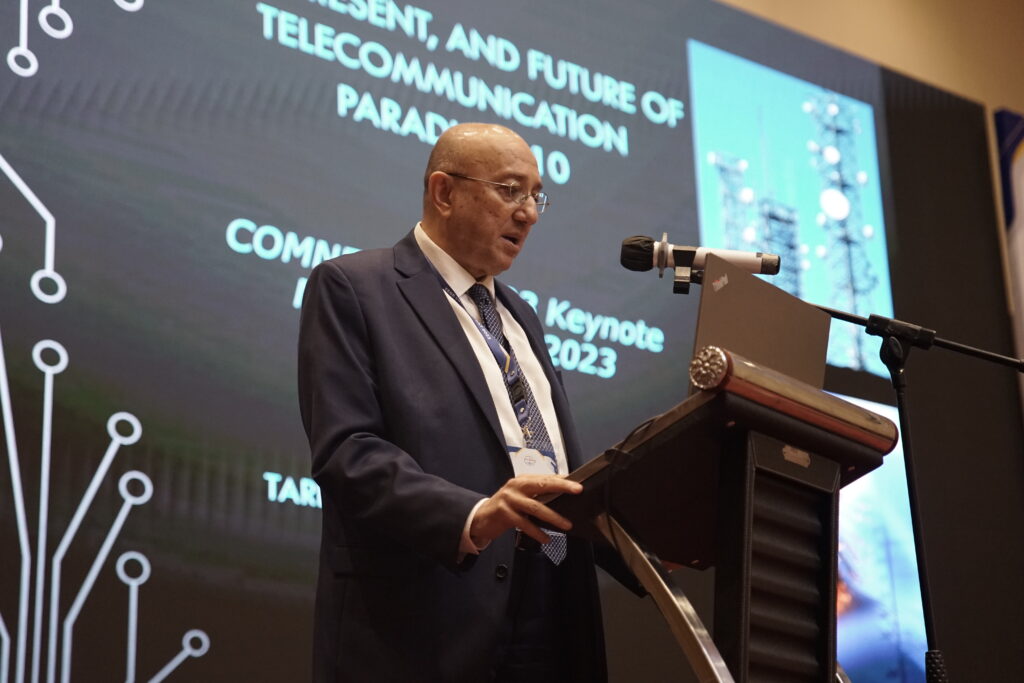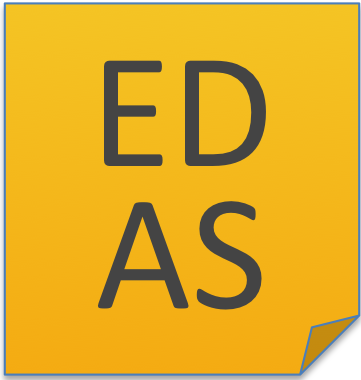



The forthcoming IEEE International Conference on Communication, Networks, and Satellite (COMNETSAT), 2024, in Mataram Lombok, Indonesia, on November 28–30 with hybrid system (online and offline). IEEE COMNETSAT, a prestigious venue for academics and professionals from all over the world, offers a global forum for academic experts and participants to exchange ideas and present the outcomes of ongoing research in the most cutting-edge areas of communications, network and information technology, satellite, broadband, and photonic, data science, and artificial intelligence. We really hope that the 13th IEEE COMNETSAT may build on the success of the previous IEEE COMNETSAT conferences and develop into a legendary and dominant conference year after year with the help of the IEEE Communications Society.



Advanced communication techniques; Antenna technologies; Business applications of telecommunications; Communication theory; Communications protocols; Earth terminal systems; Effects of legislation and regulation on telecommunications; Frameworks for wireless security; Information assurance; Integrated services for disaster relief; Location- and context-aware distributed systems; Management of telecommunications in organizations; Military applications and architectures; Modulation and coding; Radio communications; Regulatory and spectrum sharing issues; Software-defined radios; System integration and interoperability; Use of distributed services over wireless
Adoption and diffusion of networking technologies; Computer networks; Cross-border network-based information systems; Design and performance evaluation of new network application and systems; Designing, deploying and using networked systems in specialized sectors (i.e. Health, Education, Manufacturing); Emerging networking trends; Enterprise networks; Grid, cluster and Internet computing; Internetworking and network protocols; Mobile computing, mobile networks, and mobile agents; Mobility and m-commerce issues; Network architectures, services, switching, routing, and applications; Network convergence; Network management and security; Network measurements, performance analysis and evaluation; Network pricing issues and strategies; Network Resource and QoS; Optical network; Outsourcing of networking and data communication services; Peer-to-peer; Pervasive Computing Environments; Sensor, mesh, and ad hoc networks; Standards and network interoperability issues; Strategic use of networking technologies; Success factors of networked systems; Telecommuting, remote access and VPN; IoT and IoE; Smart City
Advances in launching spacecraft; Interactivity via Satellite; Inter-satellite links; Nanosatellites; Novel satellite-enabled Services; Propagation and mitigation techniques at Ku, Ka, and V-bands; Rapid response payloads; Satellite architecture; Satellite payload; Satellite subsystems and components; Terrestrial-airborne-space integration; Unmanned aerial vehicles, navigation and satellite communications
Optical Communication; Microwave Photonic; Optical Component for Analog System; Optical Signal Processing; Radio over Fiber; Non-linear photonic technology; Optical Transport Networks; Optical Access Network; Visible Optical Communication System; On-Chip Optical Network; Software-defined Optical Networks
Big Data Analytics; Big Data Technologies; Decision Tree Learning; Association Rule Learning; Artificial Neural Networks; Support Vector Machines; Reinforcement Learning; Clustering; Bayesian models and methods; Genetic algorithms; Data Representation and Visualization; Data Mining; Fuzzy Logic; Optimization Algorithms; Graph/Network/Social Mining; Image Classification; Pattern Recognition; Computational Intelligence; Creative Computing; Object Detection; Causal Reasoning & Modelling; Deep Learning Algorithms; Cloud and Distributed Computing; Quantum Computing; Data Governance and Metadata Management; Business Intelligence and Strategy; Data Visualization and Presentation; Data Privacy and Ethics; Incomplete Data; Imbalanced Data
Deadline Full Paper Submission: Jun 3, 2024
Notification of Acceptance: Jun 24, 2024
Final Paper Submission: Jul 7, 2024
Registration: Jul 1, 2024
Download IEEE Conference Template Format
Online Submissions via EDAS
Registration MUST be done after your paper is accepted and before uploaded the final manuscript (camera ready). Here are the registration fee
| Registration Type | Online | On-Site | ||
| USD | IDR | USD | IDR | |
| Student (IEEE Member) | 200 | 3.100.000 | 300 | 4.600.000 |
| Student (Regular/Non IEEE Member) | 225 | 3.400.000 | 325 | 4.900.000 |
| Professional (IEEE Member) | 250 | 3.800.000 | 350 | 5.300.000 |
| Professional (Regular/Non IEEE Member) | 300 | 4.600.000 | 375 | 5.700.000 |
| Extra Paper (2nd, 3rd Paper, etc) | 175 | 2.700.000 | 275 | 4.200.000 |
| Attendee (Without Paper) click for more information | 10 | 160.000 | 100 | 1.600.000 |
Registration payments for international participants are made via EDAS using a credit card at an exchange rate of US dollars.
Confirmation is automatic because it uses the EDAS system. If your payment is successful, the status will change to PAID.
Online Registration via EDAS 
For overseas participants who have problems paying by credit card, please transfer directly to our bank account.
Bank: Bank Central Asia (BCA)
SWIFT Code: CENAIDJA
Beneficiary Name: Khoirun Ni’amah
Account No.: 3580812278
Note:
Because you come from overseas, please make sure you include the SWIFT CODE.
Transfer fees are not included.
Registration Payment for Domestic Participants can be made by local bank transfer, with the following details:
Bank: Bank Central Asia (BCA)
Beneficery Name: Khoirun Ni’amah
Account No.: 3580812278
To make it easier to check, please add the last 4 digits of your id paper to the registration fee. Confirmation is manual, meaning you must inform and send proof to email irun@ittelkom-pwt.ac.id .



Feel free to contact & reach us!
Email: comnetsat@ittelkom-pwt.ac.id
Phone: +62-851-3232-3346 (WhatsApp Only)
